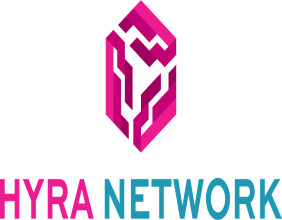Highlights:
- Regulatory Framework for Mergers and Acquisitions: The Hart-Scott-Rodino Act (HSR Act) is a U.S. antitrust law that requires investors and companies to file a pre-merger notification with the Federal Trade Commission (FTC) and the Department of Justice (DOJ) before acquiring significant stakes in a company, ensuring fair competition.
- Thresholds and Filing Requirements: Under the act, any acquisition exceeding $15 million or 15% of a company's capitalization must be reported, allowing regulators 30 days to review the transaction and assess its impact on market competition.
- Impact on Investors and Risk Arbitrage: The act plays a crucial role in risk arbitrage, where traders profit from anticipated mergers. It also helps prevent monopolistic practices by giving regulatory authorities the power to challenge deals that may harm competition.
Introduction to the Hart-Scott-Rodino Act
The Hart-Scott-Rodino Antitrust Improvements Act of 1976 (HSR Act) is a pivotal U.S. law designed to regulate mergers, acquisitions, and other business transactions to prevent monopolistic practices. Administered by the Federal Trade Commission (FTC) and the Department of Justice (DOJ), the act mandates that companies and investors meet pre-merger filing requirements before acquiring significant stakes in a firm.
By requiring regulatory approval before large acquisitions are finalized, the HSR Act plays a crucial role in maintaining market competition, protecting consumers, and preventing anti-competitive behavior.
Key Provisions of the HSR Act
The Hart-Scott-Rodino Act includes several critical provisions that define how mergers and acquisitions are regulated:
Pre-Merger Notification Requirement:
- Any company or investor planning to acquire a significant financial interest in a firm must submit an HSR filing to both the FTC and DOJ.
- The threshold for reporting is the lesser of $15 million or 15% of the target company’s capitalization (subject to periodic adjustments for inflation).
- Mandatory Waiting Period:
- Once the HSR filing is submitted, the government has 30 days to review the transaction.
- During this period, regulators assess whether the deal raises competition concerns or could lead to market dominance.
- Antitrust Review and Potential Challenges:
- If regulators find potential anti-competitive risks, they may request additional information (a "Second Request"), delaying the merger.
- In extreme cases, the DOJ or FTC can block the transaction or require modifications to address concerns.
Importance in Risk Arbitrage and Investment Strategies
The HSR Act is highly relevant in risk arbitrage, a trading strategy where investors seek to profit from mergers and acquisitions. Here’s why:
- Regulatory Uncertainty Creates Trading Opportunities: Traders analyze whether a deal will pass antitrust scrutiny or face regulatory pushback, influencing stock price movements.
- Delays and Approvals Impact Market Prices: If a merger is approved, stock prices often rise, whereas regulatory challenges can cause declines or deal cancellations.
- Insider Knowledge Risks Are Mitigated: The mandatory filing process ensures that all investors have access to public information, preventing unfair trading advantages.
Implications for Businesses and Investors
The Hart-Scott-Rodino Act has broad implications for corporations, institutional investors, and private equity firms engaging in mergers and acquisitions.
- For Corporations and Mergers
- Companies planning large-scale acquisitions must factor in the regulatory review period, potentially delaying deals.
- Additional costs may arise due to legal and compliance requirements associated with the filing process.
- For Private Equity and Institutional Investors
- Investors looking to acquire controlling stakes must be mindful of threshold limits and ensure compliance with HSR filing regulations.
- Large investment firms engaging in leveraged buyouts (LBOs) must prepare for antitrust scrutiny if a deal consolidates market power.
- For Market Competition and Consumer Protection
- The act ensures that mergers do not create monopolies, which could lead to higher prices and reduced consumer choice.
- By allowing government oversight, the HSR Act helps maintain healthy market competition and fair business practices.
Challenges and Criticisms of the HSR Act
While the Hart-Scott-Rodino Act serves an essential role in competition law, it has faced some challenges:
- Delays in Mergers and Acquisitions: The 30-day waiting period can slow down time-sensitive deals, frustrating businesses and investors.
- Increased Compliance Costs: Legal and administrative fees associated with HSR filings add to the overall cost of mergers.
- Risk of Regulatory Overreach: Some critics argue that strict antitrust enforcement can discourage beneficial mergers that could lead to innovation and market efficiency.
Recent Developments and Amendments
The threshold limits for HSR filings are periodically adjusted for inflation. Additionally, regulatory scrutiny of mergers has increased in recent years, particularly in sectors like technology, healthcare, and telecommunications, where market consolidation can significantly impact competition.
The Biden administration has signaled a tougher stance on antitrust enforcement, meaning more mergers may face delays, investigations, or outright rejections.
Conclusion
The Hart-Scott-Rodino Act is a cornerstone of U.S. antitrust law, ensuring that large mergers and acquisitions do not stifle competition or harm consumers. By requiring pre-merger filings and government review, the act plays a crucial role in preventing monopolistic behavior while also influencing investment strategies like risk arbitrage.
While it presents challenges such as delays and compliance costs, the HSR Act remains essential in maintaining fair market practices and fostering a competitive economy. Businesses and investors must navigate these regulations carefully, understanding both the legal requirements and the potential financial impact of regulatory decisions.





